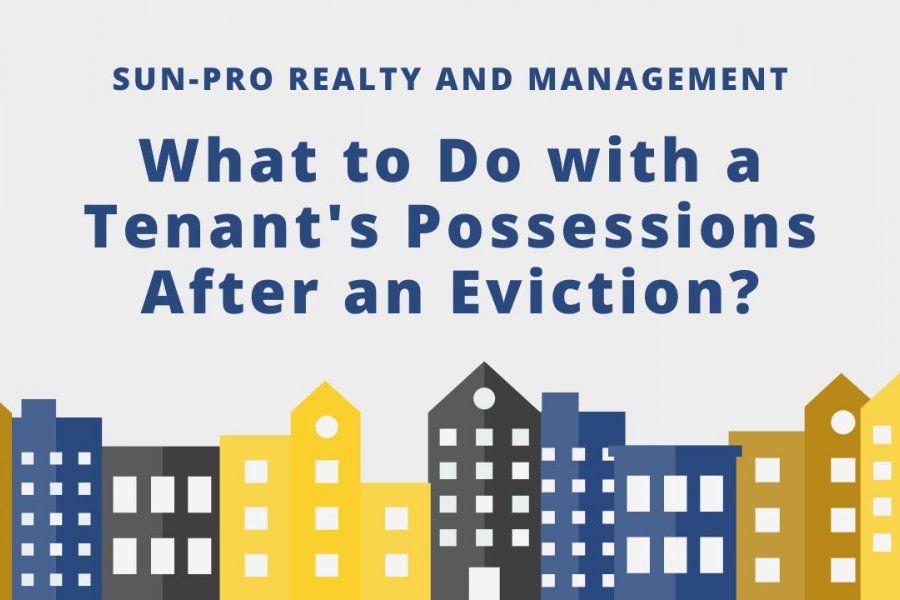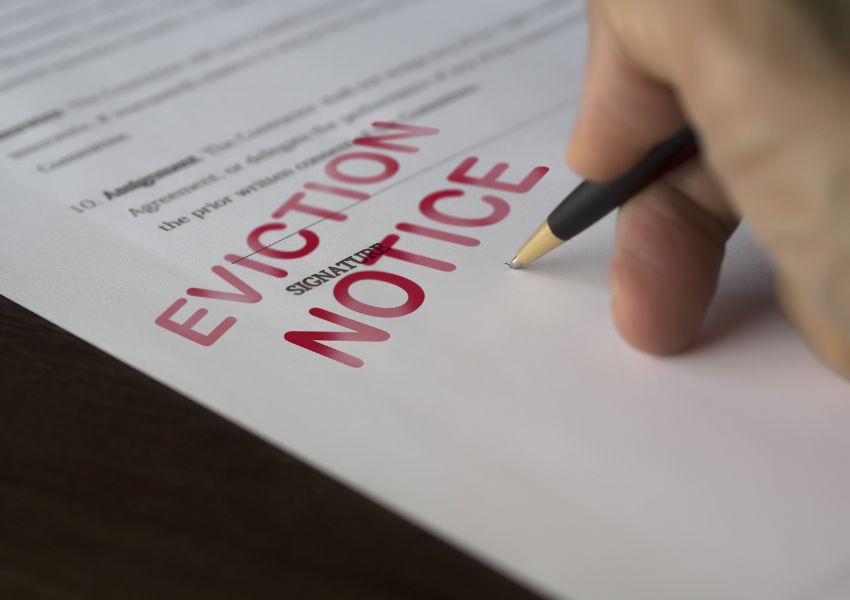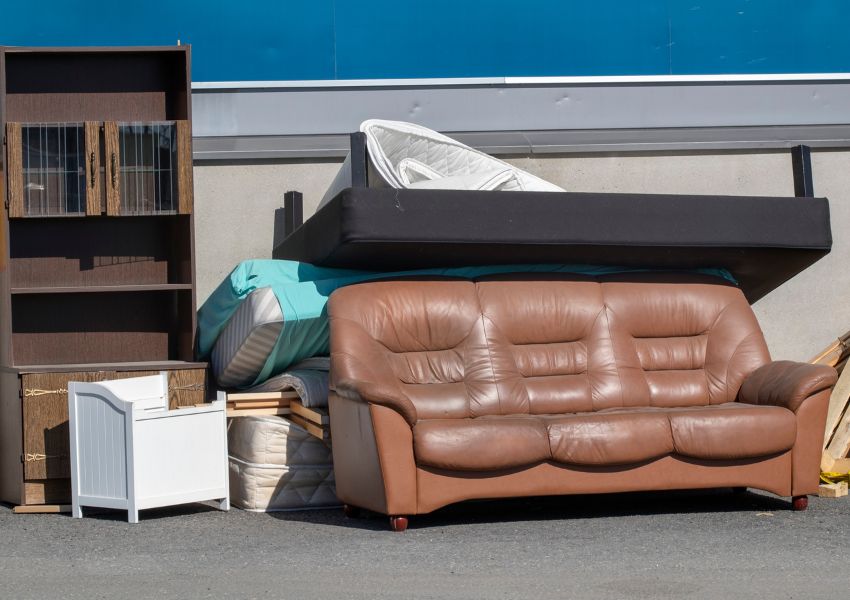
Evicting a tenant is never easy, and it can often be a stressful and emotional experience for both parties involved. However, what happens after the eviction can be just as challenging.
You may walk into your recently vacated investment property and find it still filled with the tenant's personal belongings. In other words, the furniture, clothes, electronics, and other personal items are all still there, there could be mail addressed to them that still arrives at your address, but the tenant is nowhere to be found.
As a landlord, you may wonder what to do with these possessions. Can you sell them, donate them, or store them? In this article, we at Sun-Pro Realty and Management will explore the considerations involved in dealing with a tenant's possessions after an eviction and provide some tips for handling this delicate situation.
What Is the Exact Reason for Eviction?
Evictions are usually the result of a breakdown in the landlord-tenant relationship, and it's essential to determine the exact reason for the eviction to handle the tenant's possessions correctly.
To properly comprehend what to do when a tenant leaves possessions behind following an eviction, you must look at the circumstances for the eviction. Was it due to non-payment of rent, a lease violation, or the end of the lease term?

The reason for eviction can significantly impact your responsibilities as a landlord. Every state has different laws and regulations regarding how landlords handle evicted tenants' possessions. Depending on the state's law, landlords may need to provide notice, file a lawsuit, or obtain a court order to evict the tenant.
Give Tenants a Chance to Retrieve Their Items
When a tenant is evicted, it's not uncommon for them to leave behind some personal belongings. As a landlord, you may wonder what to do with all the items left behind.
You can't just throw their things out; you have legal responsibilities to protect their property. It's essential to give tenants a chance to retrieve their abandoned property. Not only does this help to avoid potential legal issues, but it also provides a sense of closure for both parties.
A holding period, typically lasting 10 to 15 days, is often enough time for evicted tenants to collect their belongings. During this time, the tenant is usually responsible for covering any costs of retrieving their items.
How to Deal with Abandoned Property
As a landlord, dealing with an evicted tenant's abandoned property can be an overwhelming situation. However, you can easily handle the situation with the proper knowledge and by taking a few steps. Here is a detailed guide on how to store and dispose of abandoned property:

Sort Through Trash and Valuable Items
Before storing and disposing of the abandoned property, you need to sort through it. Start by throwing away all trash such as empty food containers or broken items. Keep track of any costs incurred for disposal. Don’t open locked items, however, be sure to thoroughly list everything that you’ll be storing. Take a photo so that you have records of all of the items.
Store the Abandoned Property
Once you've taken inventory of the items, you must store them safely. You can keep the items in the rental unit or move them to a different location. During this time, you may wish to start preparing the rental for a new tenant, so paying for a storage unit may be your best option.
Note that in some states, the remaining items must be kept at the property for a certain period of time before they can be moved to a storage unit or disposed of.
Give the Tenant a Chance to Retrieve Their Belongings
It's essential to notify the former tenant that items have been left behind. This notice can detail any costs you incurred for storing their possessions and state that they’re responsible for the said cost. Remember to list the following information in your notice:
- Descriptions of the abandoned property
- The location where the tenant can claim the property
- The timeframe for claiming the property
- A statement about reasonable storage costs

The tenant has at least ten days to claim the property if the notice is delivered in person or 15 days if the notice is mailed. During this time, you can usually charge the tenant reasonable costs of storing the property and prohibit them from claiming it until those costs have been paid.
What to Do When the Tenant Doesn't Retrieve Their Items?
In the event that the tenant fails to retrieve their belongings, a landlord can sell or dispose of the items. Some large items, however, like a car for instance, must be reported to local authorities as abandoned property. Landlords must let local law enforcement know to take possession of or sell the larger items.
Accounting for Damages and Costs
Once they reach this stage, landlords must note all damages left at the property and financial losses resulting from storing and/ or disposing of the abandoned items. Any profits from local bond sales or any items you sell individually can cover these costs.
Bottom Line
Evicting a tenant can be complicated, and handling their possessions after the eviction is no exception. The landlord must store the possessions for a certain amount of time, provide notice to the tenant, and may be able to sell them if the tenant does not claim them.
Remember, failure to follow the legal requirements can result in liability and penalties, so it's essential to know your responsibilities when dealing with an evicted tenant's possessions.
If you need assistance managing your rental properties in Florida, partner with Sun-Pro Realty and Management. Our experienced team can help with property marketing, tenant screenings, rent collection, property maintenance and so much more. Contact us today to learn more!
